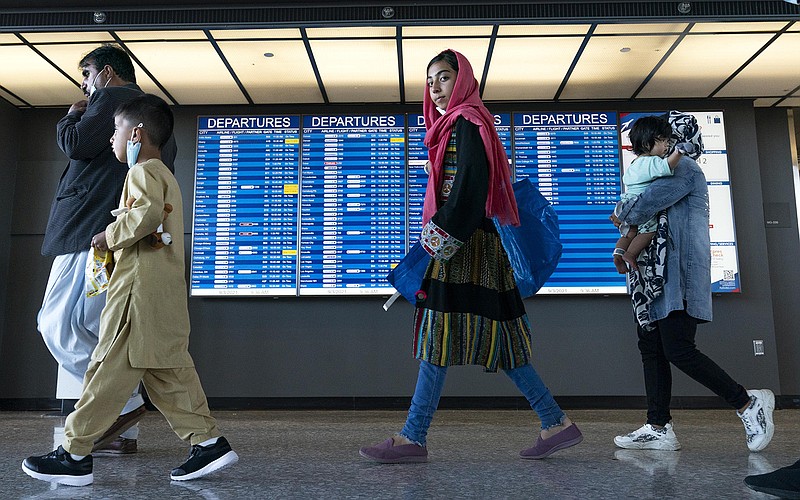An increasing number of unaccompanied migrant children in Arkansas are being removed from problem situations and put in the custody of the state Department of Human Services, Gov. Asa Hutchinson said Monday, adding that he is looking to Washington, D.C., for answers on the process of finding sponsors for them.
Hutchinson announced during his weekly briefing at the state Capitol that he was going to send a letter to the federal Department of Health and Human Services asking the agency to look at its vetting process.
"The federal government should through their agency ... vet the sponsors and make sure they can handle the unaccompanied minor," he said. "What we have seen is that the sponsors are not properly vetted and that in many instances, we are having to take custody of those unaccompanied minors that have been housed with sponsors that are really not properly vetted, qualified or responsible enough to care for these unaccompanied minors."
The Unaccompanied Children Program is managed by the Office of Refugee Resettlement, which is a division of the U.S. Department of Health and Human Services.
By law, Health and Human Services must provide care for each unaccompanied child, defined as a child who has no lawful immigration status in the United States and has no parent or legal guardian in the country available to provide care and physical custody.
Most children are placed into Office of Refugee Resettlement care because they were apprehended by immigration authorities while trying to cross the border; others are referred after coming to the attention of immigration authorities at some point after crossing the border, the Department of Health and Human Services states on its website.
The federal agency's website states that when a child enters the care of the Office of Refuge Resettlement, he or she is put in contact with parents, guardians or relatives, if known, before the process of finding a sponsor begins. The vast majority of sponsors are parents or close relatives living in the country.
Hutchinson stated in the letter, which was provided to the Arkansas Democrat-Gazette, that the number of unaccompanied minors placed in states is growing rapidly, with more than 672 children in Arkansas in the last fiscal year, more than double the number in previous years.
The Arkansas governor said state officials have seen an increase in the number of calls to the child abuse hotline regarding unaccompanied minors.
"Some of the children have been abandoned and others are living with sponsors in conditions that are deplorable," he said. "Under state law, [the state Department of Human Services] has an obligation and a responsibility to protect the health and safety of those children. When an unaccompanied minor come into DHS custody, we get information from the federal government, but the federal government does not take the minor back into custody if the sponsor is not doing their work. What we see is that unaccompanied minors are not eligible for Medicaid or other federal benefits, and this means whenever they come into DHS custody, we not only have responsibility for them from a moral standpoint, from a care standpoint, but also from a financial standpoint. So the taxpayer picks up the tab for medical, behavioral health, trauma care and shelter."
Mischa Martin, director of the Division of Children and Family Services at the state Department of Human Services, said the federal process for vetting sponsors is not working. She said better coordination between the state agency and the federal government is needed to ensure these children are safe.
"We want to make sure that the youth that are coming into our state are placed with someone safe and appropriate and that a home study and background check were properly done," she said. "We have had seven specific cases that I have been involved with in the last month. At the department, we have a plan to better track those calls that are coming in to the hotline where there is an unaccompanied minor involved. So we are going to be tracking and monitoring so we can get a better handle on how many of the youth that we are serving are unaccompanied minors that have been placed here by HHS."
Hutchinson said he knows from talking with other governors that their states are in the same position.
"I am asking that HHS quickly meet with states to discuss this issue and identify solutions," he said in the letter. "HHS should give the states more insight into the vetting process being used by ORR to qualify sponsors, and the states in turn can provide guidance to HHS based on our daily experience with child welfare placement and care."
The Arkansas governor also wants to discuss how the federal government can assist states in paying for the children's care.
As of Oct. 31, about 10,680 unaccompanied children were in the care of the federal agency.
An informational sheet about unaccompanied children on the federal agency's website outlined its directives by Congress to ensure the safety and suitability of potential sponsors.
The list of requirements for sponsors include background checks, an assessment process, fingerprinting and, in some instances, a home study.
